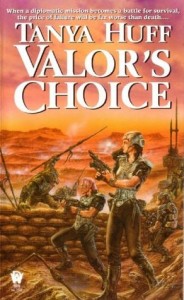 Shadow Speaker (The Desert Magician's Duology, #1) by Nnedi Okorafor
Shadow Speaker (The Desert Magician's Duology, #1) by Nnedi Okorafor Narrator: Délé Ogundiran
Format: audiobook, eARC
Source: supplied by publisher via NetGalley
Formats available: hardcover, ebook, audiobook
Genres: African Futurism, climate fiction, fantasy, science fiction
Series: Desert Magician's Duology #1
Pages: 336
Length: 10 hrs 28 mins
Published by DAW, Tantor Audio on September 26, 2023
Purchasing Info: Author's Website, Publisher's Website, Amazon, Barnes & Noble, Kobo, Bookshop.org, Better World Books
Goodreads
Niger, West Africa, 2074
It is an era of tainted technology and mysterious mysticism. A great change has happened all over the planet, and the laws of physics aren’t what they used to be.
Within all this, I introduce you to Ejii Ugabe, a child of the worst type of politician. Back when she was nine years old, she was there as her father met his end. Don’t waste your tears on him: this girl’s father would throw anyone under a bus to gain power. He was a cruel, cruel man, but even so, Ejii did not rejoice at his departure from the world. Children are still learning that some people don’t deserve their love.
Now 15 years old and manifesting the abilities given to her by the strange Earth, Ejii decides to go after the killer of her father. Is it for revenge or something else? You will have to find out by reading this book.
I am the Desert Magician, and this is a novel I have conjured for you, so I’m certainly not going to just tell you here.
My Review:
Peace bombs. A phrase that only makes sense in the context of the future history of the world that leads to this story, as told by the chaotic trickster the Desert Magician about the coming of age of the titular Shadow Speaker, Ejii Ugabe, and her friend, the rainmaker Dikéogu Obidimkpa. It’s their story, but the Desert Magician is the one bringing it to us. Also messing with them and it at the same time.
The Desert Magician is not exactly a reliable narrator – but then trickster avatars seldom are. After all, the story is more fun for them if they get to mess with the protagonists a bit. More than a bit. As much as they want.
As Ejii describes the world in which she grew up, the Earth as it exists after the ‘Great Change’ brought about by those Peace Bombs, it’s not hard to think that the event was as much of a eucatastrophe as it was the regular kind. A whole lot of things seem to be better. More chaotic, but better. Certainly the climate has improved, even if entire forests sometimes spring up overnight, while the technology imported from other, more advanced worlds has made living with the remaining extremes considerably easier.
None of which means that humans are any better at all. Whatsoever. Because humans are gonna human. But it does mean that there are more possibilities, both in the sense of seemingly magical powers and animals, and in the sense of more opportunities for more people to rise above their circumstances – even if some people are still determined to fall into the traps laid by theirs.
Which leads the Desert Magician to Ejii’s story, and leads Ejii to Jaa, the great general who swept into Ejii’s village of Kwàmfà and struck off her father’s head with her sword, setting Jaa and Ejii on a collision course that will either save the world – or end it.
Shadow speaking, the ability to hear the voices of the spirits, is one of the many gifts that have arisen after the Great Change. Ejii is the shadow speaker of the title, and at fifteen is just coming into her power. A power that is telling her to follow Jaa to a great meeting of the leaders of the worlds that have merged into one interconnected system as a result of the change.
Jaa is going to the meeting to start a war in the hopes of preventing worse to come. Ejii has been tasked with finding a way to make peace. Neither task is going to be easy – and only one of them is right. The question is, which one?
Escape Rating A-: This version of Shadow Speaker is an expanded edition of one of the author’s out-of-print early novels. The original version of which, also titled Shadow Speaker, was a winner or finalist for several genre awards in the year it was published, as a young adult novel. Which it still both is and isn’t.
It is, on the one hand, aimed at a young adult audience because its protagonists are themselves in that age range, being merely fifteen when the story begins. As a consequence of their age, both Ejii and Dikéogu clearly still have a lot of growing up ahead of them in spite of the life-changing and even world-altering experiences that have led them to undertake this journey.
At the same time, Ejii at least is very much on the cusp of adulthood, and this is a journey that forces her to make adult decisions about, with no sense of hyperbole whatsoever, the state of the world. Howsomever, a good chunk of what she brings to those decisions has the flavor of the naivete of youth, particularly in the sense that the world SHOULD be fair, people SHOULD do the right thing, and that if only people would communicate honestly a peaceful solution SHOULD be within reach.
It’s not that she doesn’t know the world and the people in it are often stupid, self-centered, greedy and downright mean, it’s that she hasn’t yet been jaded enough by her experiences to truly believe that there can’t be a better way. Even though her personal experiences thus far in her life have seldom shown it to her.
Dikéogu is not nearly as mature as Ejii is. He whines a LOT. Not that his complaints aren’t justified, but it’s so very clear that he still has a lot of growing up to do and that expresses itself in a kind of ‘pity poor me’ whining that gets hard to take – particularly in audio as he’s voiced in a higher pitch to distinguish his speech from Ejii’s. Which works very well indeed as characterization while driving me personally nuts as I find high-pitched voices jarring. (I recognize this is a ‘me’ thing and may not be a ‘you’ thing, but if it is also a ‘you’ thing, you have been warned.)
While the Desert Magician is presenting this story, he’s not an omnipresent presenter. We see the story through Ejii’s perspective except at the very beginning and end. She is the person we follow, although the story is not told from inside her head. Rather, the story unfolds around her and her actions, and we only see what she sees and know what she knows and get as confused as she does at what she doesn’t.
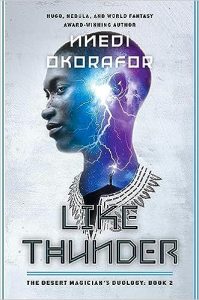 Which means that while the narrator, Délé Ogundiran, does an excellent job of standing in as Ejii’s voice, that may not be true for the second book in the duology, which will be Dikéogu’s story. Hopefully by the point in Dikéogu’s life when that story takes place, his voice will have dropped.
Which means that while the narrator, Délé Ogundiran, does an excellent job of standing in as Ejii’s voice, that may not be true for the second book in the duology, which will be Dikéogu’s story. Hopefully by the point in Dikéogu’s life when that story takes place, his voice will have dropped.
As much as Ejii comes of age and into her power through her riveting adventures in Shadow Speaker, her world and all the worlds that have become interconnected as a result of the ‘Great Merge’ that was part and parcel of Earth’s ‘Great Change’ also have a great deal of maturing to do – or at least negotiations towards that goal – as this first story ends. Whether the merged worlds will survive that change or destroy each other is part of the subsequent story in this duology that I’m really looking forward to seeing. Or hopefully hearing.
Dikéogu’s story may have started here but his true coming-of-age-and-into-power story, Like Thunder, is coming just after Thanksgiving. And I’ll be very grateful to read it – or hopefully have it read to me like Shadow Speaker – over the holidays.

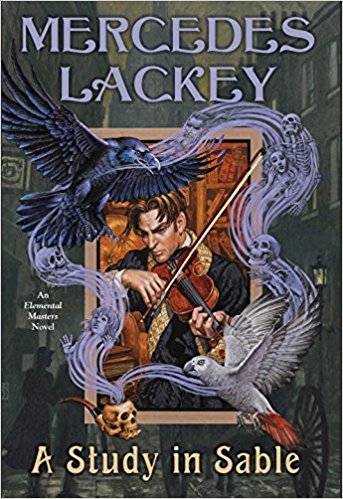 A Study in Sable (Elemental Masters #11) by
A Study in Sable (Elemental Masters #11) by  I read A Study in Sable AFTER I finished
I read A Study in Sable AFTER I finished 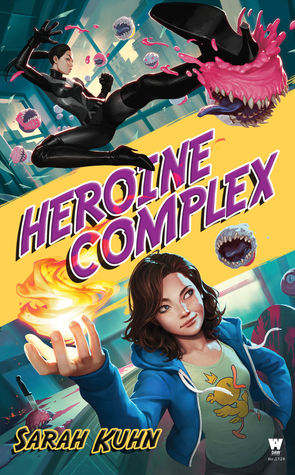 Heroine Complex (Heroine Complex, #1) by
Heroine Complex (Heroine Complex, #1) by  Because way back when Evie Tanaka and Annie Chang were girls watching Michelle Yeoh in the Hong Kong fantasy adventure superhero movie
Because way back when Evie Tanaka and Annie Chang were girls watching Michelle Yeoh in the Hong Kong fantasy adventure superhero movie 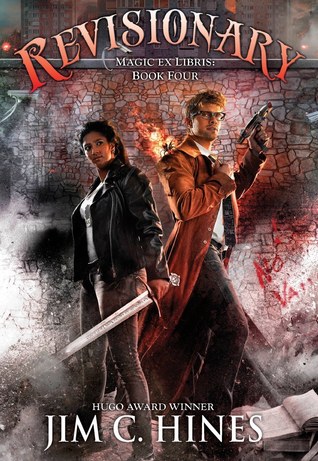 Revisionary (Magic Ex Libris, #4) by
Revisionary (Magic Ex Libris, #4) by 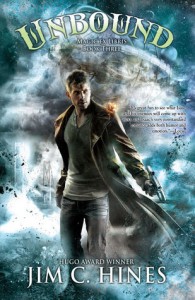 I dove into Revisionary the second I finished
I dove into Revisionary the second I finished  An Ancient Peace (Peacekeeper, #1) by
An Ancient Peace (Peacekeeper, #1) by 